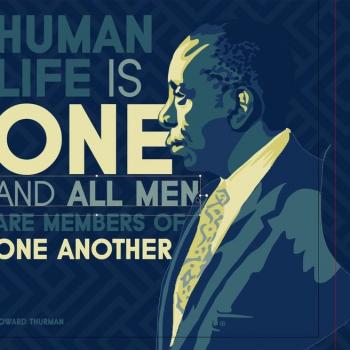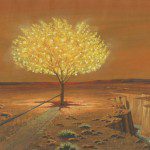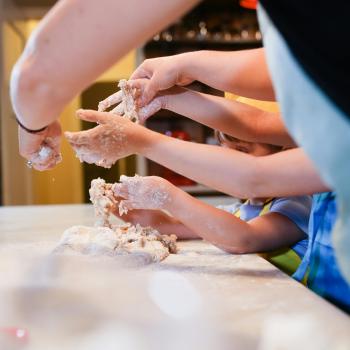What do you believe happens in prayer?
Prayer is when we enter into our relationship with God. Prayer is always an invitation to become aware of our real selves, held, connected, empowered -- loved by the real God. When we become aware of our connection to this "Source" of compassion, we become more able to accept who we are, better able to accept others as they are, and more empowered to resist and transform the principalities and powers that destroy and denigrate life.
In all of your books there is this constant theme of "slow down," "step back from technology," "go out into nature," "pay attention to what you're feeling." Do you see the current culture as harmful to the spiritual life?
Well, doesn't everyone? Not just harmful to the spiritual life, but harmful to human life, animal life, plant life, all life. We live in an age where we are aware that life is fragile. I live in Oregon, a couple of hours from the coast, within a network of rivers and streams. Our rivers and streams are slowly dying; the salmon were almost completely wiped out in the Klamath River during the Bush years.
There are large acres of ocean off the coast that are "dead zones," no oxygen, no creature or plant life. Just large swaths of dead sea. We've all seen the photos of polar bears drowning. We all know we are living a life that is unsustainable, that is expensive to the planet, to animals, to the poor around the world. We know that the American way of life is hell-bent on destruction -- we know that the wars in Iraq and Afghanistan are causing enormous death and suffering for people in the Middle East. And we know that these wars exist to sustain American, Western, forms of life. There is enormous grief and guilt and anxiety about all of this; it lies in each of us like a heavy tar within our bodies. But we live in an age of distraction; we live, as T.S. Eliot once wrote, "distracted from our distractions by our distractions." It takes real, intentional effort just to pay attention to what is permanent, what matters, what we're feeling.
One of the ways we heal all of this is to detach ourselves from the destructive habits that drive our culture. We turn off the television. Disconnect the Internet, stay out of the car, don't drive errands. Watch Jesus. He's always walking away from the hustle of the culture in order to go out by a lake, out into the wilderness, up on some mountain. We need to do the same. We need to plant a garden, sit and listen to our kids, chop wood and build a real fire in the fireplace, sit and read a book (with real pages!), walk through a farmer's market and talk to people, cook a meal with friends or family, then take the time to sit together and eat it. We need more naps on the couch. More Sunday afternoon walks.
These are Sabbath practices. These are moments when we release the driven-ness, the anxiety of our lives, and allow ourselves to come back home to what we've been given -- relationships, food, shelter, beauty, our soul in God. This not only tends our spirits, it makes us more human. We start feeling our lives again, feeling what's happening in the world. You discover energy to respond, energy to create forms of life that are more natural, more spiritual, less destructive.
The book is categorized for the Young Adult market and yet you have about fifteen comments on Amazon, saying, "Hey, this book is really for adults." Did you intend to write this book for a young audience? Why wasn't this book marketed to a general audience?
At first I wrote the book for teenagers. As I said, I wrote it for my own kids and they're coming into their teen years. But, my own kids don't like to be talked to as "teenagers." I think there is nothing that makes them wince and recoil as much as an adult trying to talk "teenager" -- "Hey dude, was' up?" They hate that crap. So I wrote the book the way my kids would want me to write to them, truthfully, honestly, without talking down to them. When the editors read the manuscript they said that this book could be read by adults as much as kids. So they put it in the "Young Adult" category. I just had a youth group in Wisconsin who had thirty of their students read it. I've also heard from adult classes in Colorado and Washington who are using the book.
You know, in the Bible Jesus just tells the truth and people of all ages get something from it. One of the lies that the marketplace has created for us is that we need to be segregated according to our age. That segregation has been so damaging. My kids go to an alternative public school that's kind of like the old one-room schoolhouse. They share classes and recess with kids from five to eighteen, and lots of adults mixed in. What I've noticed is that my kids do not act like teenagers. They like to hang out with adults; they know how to play games that involve six-year-olds and seventeen-year-olds. They've never been segregated within a junior high school, or something. And they're much healthier because of it.





